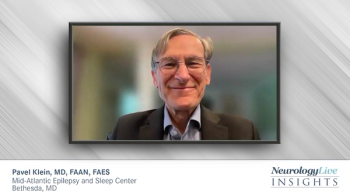
A panelist discusses how early recognition and intervention in prolonged seizures and status epilepticus are essential to prevent neuronal injury, reduce long-term complications, and improve overall quality of life for patients.

A panelist discusses how early recognition and intervention in prolonged seizures and status epilepticus are essential to prevent neuronal injury, reduce long-term complications, and improve overall quality of life for patients.

A panelist discusses how standard antiseizure therapies control seizures in most patients, but the persistent challenge of breakthrough and drug-resistant epilepsy underscores the critical role of timely rescue medication use to prevent complications and empower proactive at-home management.

A panelist discusses how selecting the optimal benzodiazepine rescue medication depends on factors such as route of administration, setting, and patient preference, with intranasal formulations increasingly favored for their rapid onset, ease of use, and greater acceptance in outpatient and home environments.

A panelist discusses how REST empowers patients and caregivers to intervene at seizure onset with fast-acting rescue therapies, preventing escalation, reducing emergency care, and improving long-term outcomes and quality of life.

A panelist discusses how the phase 2b ENGAGE-E-001 study highlights Staccato alprazolam as an effective and well-tolerated option for rapid seizure termination, emphasizing its quick onset of action and potential benefits, while also cautioning about adverse effects such as sedation and respiratory depression in certain patients.

A panelist discusses how midazolam autoinjectors provide an effective, fast-acting solution for rapid eye seizure termination (REST) in emergency settings, emphasizing the importance of proper education, timely use, and monitoring for adverse effects such as sedation or respiratory depression.